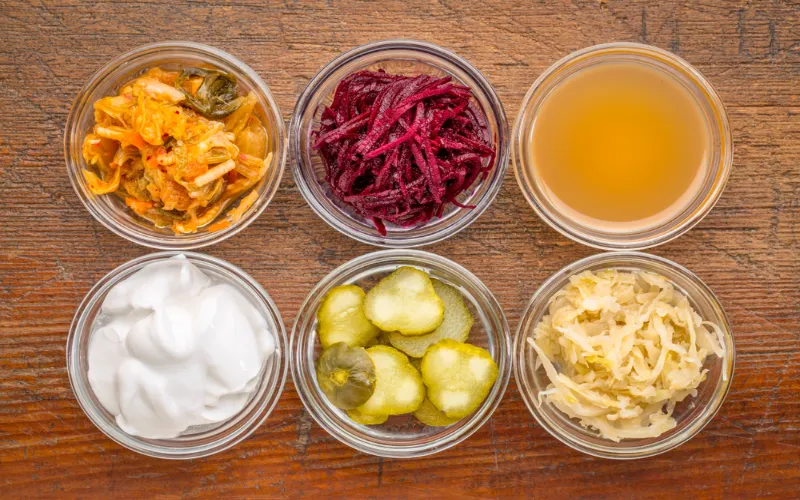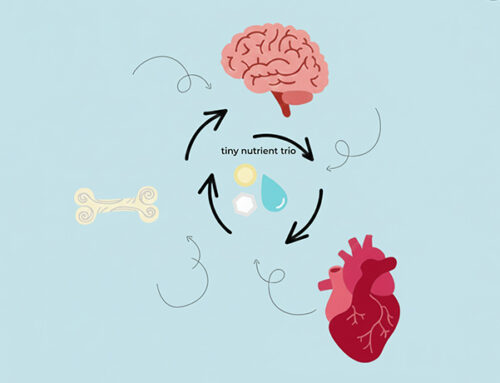The human microbiome, a group of microorganisms in our digestive system, plays a crucial role in our overall well-being. Among the various actors in this microscopic ensemble, pickles may seem an unlikely protagonist. Yet, these tangy condiments are more than just a flavor enhancer for your palate—they may be beneficial to your gut health.
Probiotic Potential of Pickled Vegetables
Nestled within the brine-soaked depths of pickled vegetables lies the potential for probiotic benefits. These edibles undergo a transformative process, often fermenting, that encourages the growth of beneficial bacteria. These microscopic residents are known to colonize the gut, contributing to a diverse and rich microbiome.
The Fundamentals of Fermentation
The art of fermentation is an ancient culinary practice wherein microorganisms such as yeast and bacteria convert organic compounds—like sugars and starches—into alcohol or acids. This alchemical process not only imparts a distinctive tangy taste but also preserves the food, gifting it with an extended shelf life.
What is the difference between Fermentation and Pickling?
While both fermentation and pickling are honored for their preservative qualities, they are distinct in their methodology.
- Fermentation is the metabolic process that produces complex flavors, acids, and gases.
- Pickling is the process of preserving food by immersion in vinegar or brine.
Fermentation: The Science of Sour
Fermentation is the magic of the culinary world, a natural phenomenon where bacteria and yeasts convert carbs into alcohol or acids. The result is a distinctive sour flavor and many live cultures that can act as probiotics.
The Role of Lacto-Fermentation in Gut Health
Lacto-fermentation, a specific type of fermentation process, uses Lactobacillus bacteria, abundant in our environment and even on the surface of vegetables. These bacteria convert sugars into lactic acid, creating an environment that preserves the vegetables and enhances their digestibility and nutritional value.
How Fermented Foods Work Wonders for Your Gut?
Fermented foods are replete with live cultures that, when ingested, join the ranks of the gut’s microbial army. By enhancing the gut flora, they contribute to improved digestion, bolstered immune response, and may even have a positive impact on mental health.
Gut-Friendly Pickles
Not all pickles offer the same probiotic punch. Gut-friendly pickles have been fermented naturally in brine and contain live cultures. These can often be found in the refrigerated section of health food stores, boasting labels like “naturally fermented.”
Pickles and Probiotics: Making the Connection
Lacto-fermented pickles are a natural source of probiotics due to the Lactobacillus bacteria that thrive in their anaerobic, salt-rich environments. These probiotics are pivotal for maintaining a balanced gut microbiome.
Lacto-Fermented vs. Vinegar-Based: Which Is Best for Your Gut?
Regarding nurturing gut health, lacto-fermented pickles are superior to their vinegar-based counterparts. The former contains live probiotics, while the latter, often pasteurized, lacks beneficial bacteria.
The live cultures present in lacto-fermented pickles are the foot soldiers of the gut, aiding in the breakdown of food and absorption of nutrients. This leads to a digestive system that functions with clockwork precision.
Types of Pickles Good for Gut Health
To cater to the gut microbiome, seek out pickles like traditional dill, naturally fermented with garlic and spices, or briny delights like sauerkraut and kimchi, which offer a bevy of live bacteria.
Top Pickles for Gut Health
These are as follows:
Dill-lightful Digestion
Traditional dill pickles, brimming with herbal notes and a garlic infusion, offer more than just a crunchy snack—they are a reservoir of probiotics that support digestive health.
Sauerkraut: The Gut Health Powerhouse
Sauerkraut, with its finely sliced cabbage fermented in its lactic acid, is a titan in the realm of gut health. It’s not only a probiotic juggernaut but also a crucible of vitamins C and K.
Kimchi: A Spicy Twist on Gut Health
Kimchi, a Korean staple, marries fermentation with a spicy palette. Its rich probiotic content and high fiber levels make it a formidable ally for the gut.
Gherkins: Small but Mighty Gut-Friendly Pickles
Gherkins, though miniature in stature, pack a punch with their probiotic content. These tiny titans are perfect for those seeking to introduce probiotics into their diet without overwhelming their taste buds.
Nutritional Profile of Gut-Healthy Pickles
- Gut-healthy pickles are not only probiotics but also a treasure of nutrients. They are rich in vitamins and fiber, essential for maintaining a healthy digestive tract.
- While the brine in pickles is necessary for the fermentation process, it’s also high in salt, which should be consumed in moderation for optimal health.
Antioxidant Presence in Pickles
Pickles are not only a low-calorie snack but also contain antioxidants. These compounds can combat oxidative stress in the gut, potentially warding off inflammation and other digestive disorders.
Incorporating Pickles into Your Diet
Probiotic pickles can be paired with a variety of foods. They complement rich meals by aiding digestion and can be a refreshing counterpoint to grains and legumes.
Dos and Don’ts: How Much Is Too Much?
Moderation is key when incorporating pickles into your diet. Due to their high sodium content, it’s prudent to consume them balanced, alongside a diverse range of foods.
Crafting the Perfect Probiotic Plate
Creating a meal that caters to gut health can be as simple as integrating a serving of lacto-fermented pickles or as elaborate as crafting a dish where pickles play a central role, such as a tangy salad or a probiotic-rich sandwich.
Myths
It’s vital to dispel the myths surrounding pickles and gut health. Not all pickles contain probiotics, and their health benefits can vary widely based on how they are produced.
What Labeling Tells You About Pickles?
Label scrutiny is crucial when selecting pickles for health benefits. Look for terms like “naturally fermented” or “contains live cultures” to ensure you’re getting the probiotic benefits.
What Research Says About Pickles and Gut Health?
Recent studies underscore the importance of fermented foods in a balanced diet, highlighting how they can contribute to gut health, thus reinforcing the connection between pickles and wellness.
Side Effects and Considerations
- While pickles can be a healthful addition to the diet, they can also cause adverse reactions in some individuals. It’s essential to listen to your body’s responses and adjust your intake accordingly.
- The high sodium content in pickles can lead to an increase in blood pressure. Those with hypertension should be particularly cautious about their pickle consumption.
When to Avoid Pickles?
There are certain conditions where pickles might not be the best choice for gut health. Individuals with salt-sensitive hypertension or those prone to acid reflux should consult with a healthcare provider before indulging.
DIY Making of a Gut-Friendly Pickle
Crafting your own probiotic pickles at home can be a fulfilling effort. With the right ingredients and patience, you can create a batch of gut-friendly snacks tailored to your taste.
The Best Ingredients for Homemade Gut Health Pickles
Selecting quality, organic produce and natural salts can make a significant difference in the probiotic potential of your homemade pickles.
Fermentation Time
The fermentation time for pickles can vary, but typically, one to four weeks is required to develop their full probiotic profile.




